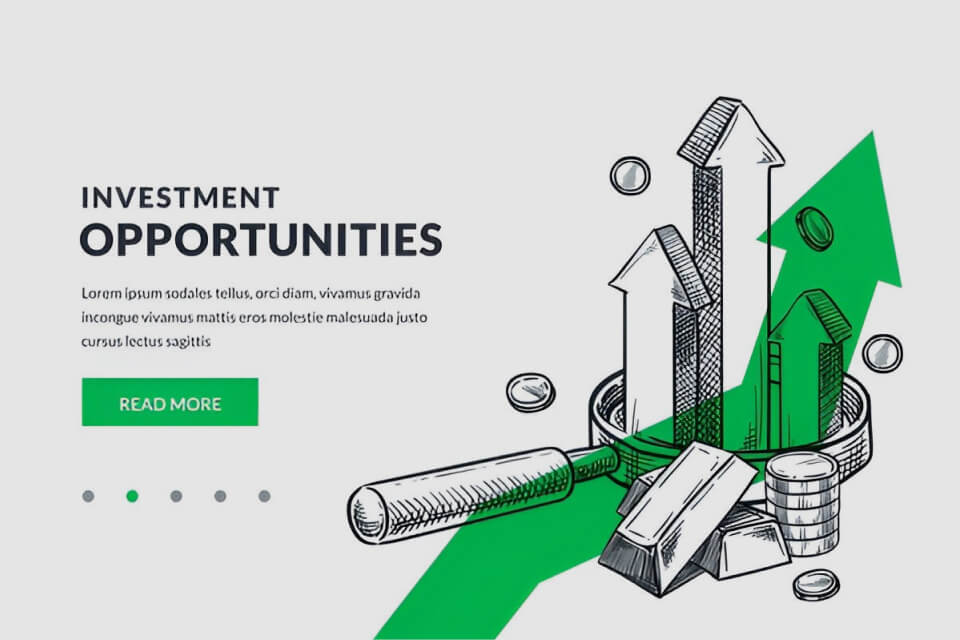Introduction
Have you been asking yourself how to start investing with a small budget? The good news is that it is possible. You don’t need to be rich before you begin. Investing is one of the best ways to build financial security, and even small steps today can grow into big results tomorrow.
In Africa, an increasing number of people are now using micro-investing platforms, which enable them to invest small amounts of money in shares, funds, or projects. Whether you are saving for your future or just want your money to work harder, learning to invest with a small budget is a smart decision.
Importance of Starting Small in Investing
Many people believe you need plenty of money before investing, but that is wrong. Beginning small helps you learn how the market works without too much risk. It also teaches you to save consistently, which is very important.
Over time, compound interest makes even tiny amounts grow. In fact, starting small makes investing less scary and builds your confidence. The most successful investors often started with little. What matters most is not how much you begin with, but how early you start.
Overview of Opportunities for Micro-investing in Africa
Today in Africa, micro-investing is changing the way people handle money. Platforms now allow you to invest with just a few dollars. You can buy fractions of stocks or join mutual funds with very low entry amounts. Thanks to mobile apps and digital wallets, young people, even those outside big cities, can join easily.
Besides stocks, there are also options like real estate crowdfunding or savings groups where people pool money for projects. These opportunities keep growing, so now is a good time to start and let your money grow with you.
Understanding Micro-Investing
Starting to invest can feel like a huge step, especially if you think you must have plenty of money. But the good news is this: you don’t need to be rich before you begin. Micro-investing makes it possible for anyone, even students, to start investing with small money.
What Micro-investing Means for Beginners
Micro-investing simply means putting small amounts of money into investments like stocks, bonds, or mutual funds. Instead of needing thousands of naira or dollars, you can start with just a few hundred or even less. This is possible because micro-investing platforms allow you to buy a part of a share, not only the whole share. Since one full share of some companies can be very costly, buying partial shares makes investing easier. For beginners, this is a smart way to learn how investing works without risking too much.
Benefits of Starting with Small Contributions
Beginning with little money comes with many benefits.
First, it removes the fear of losing big money. If money is tight, you can still invest small amounts regularly, and over time your portfolio will grow.
Also, your money can increase through compound interest, which means you earn on your money and also on your past earnings. This slow but steady style makes it easier to keep investing consistently—and that is one of the secrets of success.
Furthermore, it helps you build good saving habits and understand the market without feeling too stressed.
Common Myths about Needing Large Capital to Invest
Many people believe that you need a large fund before investing. This is not true. Today, with technology and online platforms, you can begin with small amounts and still enjoy returns over time.
Another common wrong idea is that investing is only for experts or rich people. The truth is that anyone can learn how to invest wisely. People also think investing is like gambling, but it is not. Gambling is luck, but investing is about making informed decisions and planning for the future. Even with a small budget, you can still build wealth step by step.

Platforms Enabling Small Budget Investments
Thanks to digital platforms and fintech apps, you can start investing with as little as $10. These platforms make investing simple, safe, and open for everyone. They are helping people who never believed they could invest to now join the money world. Let us see how platforms like Daba are changing the story.
Role of Fintech Apps like Daba in Democratizing Investing
Fintech apps are like bridges that connect ordinary people to the world of investing. For example, Daba Finance is a special app that allows you to invest in things like stocks, bonds, venture capital, and managed funds. The best part is that you don’t need plenty of money to begin; with just $10 you can start.
Also, Daba teaches you along the way. It gives personalised advice so that you know what to do and how to grow your money. This is making investing less scary and more possible for beginners and those who don’t have large savings.
Accessibility of African Funds to Both Locals and Diaspora
Another exciting thing about Daba is that it works for both Africans at home and those living abroad. Whether you are in Nigeria, the UK, or the US, you can use it to invest in African markets. This means anyone connected to Africa, either by family or by interest, can be part of the continent’s growth while still earning money.
Daba also supports different currencies and payment methods, making it easy for everyone to join. So no matter where you are, you can still invest in Africa’s future.
Security and Transparency of these Platforms
When it comes to money, trust is very important. Many beginners worry if their money will be safe online. But platforms like Daba focus on security and transparency. They follow global financial rules, hold licences like the SEC Registered Investment Advisor in the US, and use safe payment systems that meet international standards.
In addition, Daba shows clear fee structures without hidden charges. You always know what you are paying. It also allows you to track your investments in real time, so you can see how your money is growing.
Pooling Funds for Greater Impact
Starting to invest may look hard, especially if your budget is small. But what if you could join others and combine your money together? By pooling funds, people can access bigger opportunities that they could not reach alone. This is where investment clubs and groups are very useful. They help members invest collectively, grow money faster, and also learn from each other.
How Investment Clubs and Groups Operate
Investment clubs are groups of people who put money together to invest as a team. Each member contributes a set amount regularly.
Then, the group decides together where the money should go. It could be in stocks, bonds, or even real estate. Because everyone shares ideas, members learn more about the market.
Clubs usually have 10 to 20 people, which makes it easier to make decisions and also raise enough funds. Members meet often to present ideas, discuss options, and vote on the best investments.
Example: Diaspora Clubs Starting with $100 per Member
Across Africa, many diaspora communities have started investment clubs with as little as $100 per member. When they pool this money, the group builds a bigger fund that can be used to invest in startups or larger projects back home. This small start teaches financial discipline and helps members trust each other. It also allows people to share knowledge, reduce individual risk, and increase the group’s buying power. In this way, members can even attract venture capital or support fast-growing businesses.
Advantages of Collective Investing for Access to Bigger Opportunities
Pooling funds brings many advantages.
First, it gives access to bigger investments that normally need large capital, like real estate or private equity.
Second, it reduces risk because no single member carries all the loss.
Third, members gain a learning platform where they discuss strategies, markets, and investment options.
Finally, it promotes accountability. Since everyone contributes regularly, members stay consistent and committed.
Even with small money, it becomes possible to build wealth and grow financial knowledge.

Practical Tips for Small Budget Investors
The main idea with investing is to begin with small, steady steps and focus on growing your money little by little. Here are some practical tips to help you start investing with a small budget, especially if you are in Africa.
Start with Consistent, Small Contributions
The first tip is to start small but always stay consistent. Even if you can only save 500 Naira or 1,000 Naira every month, it counts if you do it regularly. Doing this helps you build a good habit of saving and investing.
Many investment platforms today let you start with very little money, so you do not need to wait until you have a big amount.
Over time, your small savings will grow thanks to something called compound interest. So, why wait when a small step today can become a big one tomorrow?
Diversify across Different Assets and Markets
Next, you should diversify your investments. This means you should not put all your money in just one type of investment.
Instead, try to spread it across stocks, bonds, or even local businesses. Diversifying lowers your risk because if one investment does not do well, others might do better.
You can also try different markets: your local Nigerian market and other African markets. Today, technology and global investment platforms make it easier than ever to access different options, even with a small budget.
Track Progress and Reinvest Returns for Growth
Lastly, always check how your investments are doing and try to reinvest the returns. Tracking your progress helps you understand how your money is growing and whether your investments are working well. Instead of taking out your earnings, putting them back into your investment helps your portfolio grow faster.
Reinvesting returns is a strong way to build wealth over time. Many apps now make it easy to follow your investments, so you can stay informed. Like planting a seed, careful attention and patience will make your money grow strong.
Overcoming Challenges of Small Budget Investing
Starting to invest with a small budget may seem hard, but actually, anyone can begin building wealth with the right approach. You do not need thousands of pounds to start; what matters more are smart decisions and patience. Even small amounts of money can grow if you use it wisely. Here are some challenges you may face when investing with little, and how to overcome them.
Managing Fees and Transaction Costs
One of the first problems you will notice is fees and transaction costs. When you invest small amounts, fees can take a big chunk of your money. For example, paying a fixed fee for every trade is not worth it if you only invest £10 or £20 at a time.
So, look for platforms that offer low or zero fees. Also, you can use apps that let you invest automatically, like micro-investing apps or robo-advisors. These tools invest your money with low fees, which means more of your money stays invested and grows for you.
Dealing with Risk and Market Fluctuations
All investments carry some risk, no matter the amount. When you start small, losing money can feel worse than it really is, and this can be scary. But remember, markets always go up and down over time.
The best way to handle this is by spreading your money across different investments, like stocks, bonds, or funds. This is called diversification, and it reduces the chance of losing everything if one investment performs badly.
Also, think long-term and try not to panic when markets drop. Over time, the ups and downs even out, and your money can grow steadily.
Staying Disciplined and Avoiding Emotional Decisions
Another challenge is emotions. Many new investors make the mistake of letting feelings guide their choices. It is easy to feel excited when the market is up or nervous when it goes down, but this often leads to mistakes.
The solution is to stay disciplined and stick to a plan. For example, set a schedule for investing, like every month, instead of trying to time the market. Keep learning about investing and focus on your long-term goals. Patience and discipline will help your small budget grow slowly but surely.

Frequently Asked Questions (FAQs)
1. Can I start investing with just a small amount of money?
Yes! You can start with very little money. Today, many platforms and apps make it easy for beginners to invest small amounts.
2. What is micro-investing?
Micro-investing is a way to invest small amounts regularly. It is a simple way to start building wealth without needing a lot of money upfront.
3. Are there risks when investing with a small budget? Yes. All investments carry some risk, no matter the amount. That is why it is important to invest only what you can afford to lose.
4. How can I find trustworthy investing platforms?
Look for platforms that have good reviews and are properly regulated. Also, check for security features that protect your money. Doing some research first will help you invest safely.
5. Is it better to save money first or start investing right away?
It is smart to have some savings as a safety net. However, even if you have only a little money, starting early helps your investment grow over time, thanks to the power of compound interest. The earlier you start, the better.
Conclusion
Starting to invest with a small budget is easier than most people think. Thanks to micro-investing apps and digital tools, anyone can begin building wealth with little money. Remember, investing is a journey that requires patience, good research, and smart strategies. Even small investments can make a big difference in the future. Plus, by investing responsibly, you can contribute to the growth of African economies.
Key Takeaways on Building Wealth from Small Beginnings
Even small amounts of money can grow into significant wealth if you invest wisely. Starting early and being consistent matter more than having a large sum of money at first. Using tools like high-yield savings accounts or micro-investing apps can help you build your portfolio bit by bit. With patience and learning how to make smart investment choices, your small beginnings can turn into big financial success over time.
Encouragement to Leverage Micro-investing Platforms Responsibly
Micro-investing platforms are a great way to start your investment journey with little money. But remember to use them wisely. Always check the platform’s security, fees, and legitimacy before putting your money in. Never invest money you might need urgently, and try to spread your investments across different options. When used responsibly, these apps can help you build good financial habits and create opportunities for wealth in the future. So why wait? Start small, stay consistent, and let your money grow for you.


